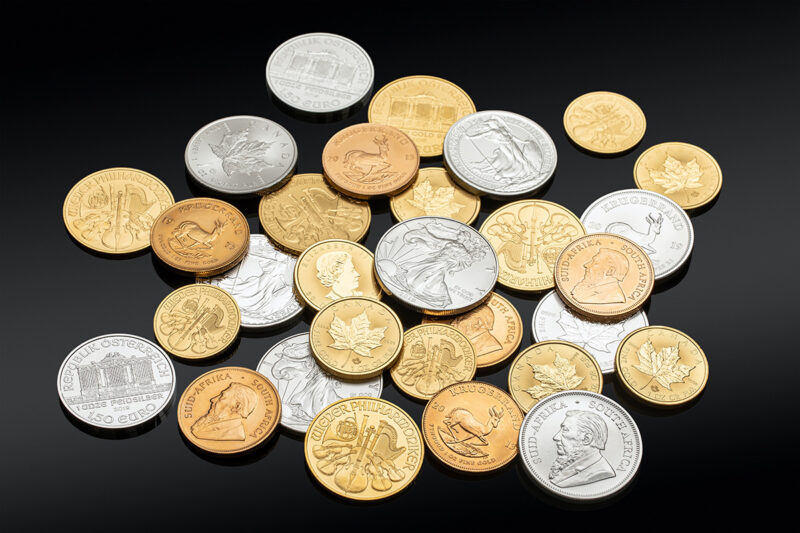

The emergence of extractive capitalism
The adoption of a new economic logic at the beginning of the 19th century allowed the English and Dutch to acquire a dominant position over the rest of the European economies, and by extension, over the rest of the world’s economies. This prompted the old European monarchies – Castile, Portugal, France, Austria, Prussia and Russia – to seek ways of embracing this modern socio-economic vision in order to eradicate their endemic poverty, but unlike the former, it forced them to undergo tumultuous processes of adaptability to the new economic system.
Oriol Garcia Farré, historian and 11Onze agent
At the beginning of the 17th century, the first colonial empires with deeply Catholic roots – such as Castile and Portugal – were structurally bleeding to death as a result of decades of fierce fighting against the Protestant and Turkish world, which was causing them significant losses of economic resources and a growing territorial delegitimisation. The repression exercised by the Catholic Castilian fundamentalists – led by their king – against the Dutch Calvinist world, far from definitively subjugating those territories, had the opposite effect, as it brought to the surface a survival instinct that has been widely studied by the Social Sciences.
At the root of the conflict was the Dutch refusal to contribute financially to the Hispanic imperial cause, which sought to universalise Catholic culture. For more than eighty years, imperial encounters sought to break the Dutch protective ring that had been built up to counter the pressure exerted by the famous Flanders “tercios”. This line of defence consisted of forty-three towns and fifty-five fortifications. Forced to live within this territorial microcosm, Dutch survival – as people – required rationalisation and systematisation of public and private initiatives.
First and foremost, Amsterdam was to become the epicentre of power for the seventeen United Provinces. From there, they would promote the creation of a free and open market that would be able to satisfy the needs – in that context of permanent war – of all the cities of the Dutch territory. Thus, it would encourage the diversification of agriculture as a basis for future specialisation and division of labour, foster technological innovation to improve agricultural production, promote fairs and markets to encourage the exchange of goods and services, expand internal trade networks and seek external trade routes through the development of a powerful shipbuilding industry, and guarantee the right to private ownership of the means of production. But above all, the government of the federation of the United Provinces would enforce all commercial contracts and ensure full freedom of movement of both people and goods through the creation of a Dutch standing army.
Therefore, this whole level of organisation resulting from the conjunction of the public and private spheres would be designed to meet the needs of the population in the face of Catholic pressure, which would lead to a significant increase in public spending. To reduce it, a financing mechanism would be developed consisting of issuing long-term public debt securities, which would be traded on the recently created Amsterdam stock exchange.

Forced to live within that territorial microcosm, Dutch survival – as people – demanded rationalisation and systematisation of public and private initiatives.
And Descartes came to the rescue!
A transcendental event was the contribution of the philosopher René Descartes to the mentality of Northern European society. Through his treatise “Man” he will argue that humans are divided into two distinct components: an immaterial mind and a material body, the latter understood as a perfect machine. In this way, he will succeed in separating the mind from the body and establish a hierarchical relationship between the two. Therefore, as the seigniorial classes dominate nature and seek to control it for productive purposes, the mind will have to dominate the body for the same purpose.
This view will be exploited by Calvinists to model the “good Christian” as one who controls his body, his passions and his desires and thus ends up self-imposing a regular and productive order. Therefore, any inclination towards joy, play, spontaneity or the pleasures of bodily experience will be considered potentially immoral.
All these ideas will be fused into a new explicit value system: idleness is a sin and productivity is a virtue. Within Calvinist theology, profit will become a symbol of moral success. It will be the test of salvation. To maximise profit, people will be encouraged to organise their lives around productivity and those who fall behind – during the race for productivity or fall into poverty – will be branded with the stigma of sin. This new ethic of discipline and self-mastery will become central to the culture of capitalism.
The creation of new monopolies
Until then, commercial expeditions had operated on the basis of small fleets created and controlled expressly by the monarchies. Most of the time, the company was set up for a single commercial voyage and, on its return, the small fleet was liquidated so as not to bear the costs of maintenance. Investment in such ventures was therefore extremely costly and high risk, not only because of the usual dangers of piracy, disease and shipwrecks but also because of the conditions of the spice market, where inelastic demand – insensitive to price changes – and relatively elastic supply – price changes increasing supply – could cause prices to fall at just the wrong time and ruin the venture’s prospects of profitability.
Thus, if the commercial expedition was successful, it has been calculated that the return was close to 400% of the initial investment, allowing the Crown to boost its economy. On the other hand, if it was a failure, it was the Crown itself who assumed the losses and, consequently, it was the population who ended up paying the debt through higher taxes and lower salaries, since the Monarchy managed the violence.
But in the early 17th century, through the formalisation of stable agreements – known as cartels – the respective governments of England and Holland obtained charters granted to private initiatives in the spice sector to trade with the East Indies. With the creation of the British East India Company and the Dutch East India Company, entrepreneurial mechanisms were put in place to control supply and minimise risk in the global spice trade.
The novelty arose in the founding process of both companies when they came up against the problem of financing. Given the size and high costs involved, the founders of the companies were unable to finance the entire cost of the project, which made it necessary to obtain financing by selling part of their securities to merchants and small savers, to whom they granted them a share of the companies’ future profits in exchange.
The stock exchange becomes the key to the new system
Thus, both the British East India Company and the Dutch East India Company would be the first shareholder-owned companies to be listed on the London and Amsterdam stock exchanges respectively. From then on, any English company seeking finance would be able to trade in its own securities. In less than a hundred years, more than a hundred English companies will be trading their own securities on the London Stock Exchange. For their part, any resident within the United Provinces would have the possibility to register in writing – in any of the 17 Dutch Chambers – the amount of money they wanted to invest on the stock exchange. At the beginning of the 19th century, both companies will distribute annual dividends of 40% to all shareholders and will be the first companies to publish their profits annually.
Supported by the methodical rationality of the Protestant world, both the English and the Dutch managed to give commercial continuity to those companies, which eventually became true multinationals for almost three hundred years, thanks to the use of the stock exchange as a mechanism to finance future commercial expansions. Therefore, the new economic system will be more dynamically and efficiently self-regulating, unlike the old centralised system, which still remains today. Within a few years, the new financial mechanisms and continuous private initiatives will break up the old commercial monopolies controlled by the first colonial empires, which had been self-legitimised by the right of conquest through the Treaties of Tordesillas, Zaragoza and Cateau-Cambrésis.
The two companies will be structured as a modern vertically integrated global supply chain corporation divided by a conglomerate of companies that will allow them to diversify into multiple commercial and industrial activities, such as international trade, shipbuilding and the production and marketing of spices. The companies would become so large in the early 19th century that they would gain quasi-governmental powers over their colonies, such as the ability to wage war, imprison and execute convicts, negotiate treaties, issue currency, have their own flag and conquer new territories. The most extreme case was the British East India Company, which ruled India until its dissolution in the late 19th century when it passed directly into the hands of the British Crown.
Therefore, we would never be able to understand the English industrial revolution of the late 18th century if we untied it from the financial revolution that began in the early 17th century. As England was able to obtain more raw materials and more markets, it would be forced to mechanise all its production processes in order to satisfy the growing world demand. By the middle of the 19th century, it would control 30% of world markets, although this would change at the end of the century when new competitors appeared.

We would never be able to understand the English industrial revolution at the end of the 18th century if we untied it from the financial revolution that began at the beginning of the 17th century.
A system to satisfy social welfare
Unlike mercantilism, capitalism will decide not to consume all its goods, since it will organise itself rationally and methodically for the sole purpose of producing, accumulating and investing its goods in order to produce more and more. In this sense, capital investment decisions will be determined by profit expectations, whereby the profitability of invested capital will play a fundamental role in any economic activity.
The enlightened scholars defended capitalism as the only economic system capable of generating sufficient wealth to satisfy social welfare, which could only be maintained on the condition that it generated continuous economic growth in the production of goods and services. Thus, meeting this crucial social need will only be possible if there is a progressive specialisation in work or if new skills are acquired by individuals, companies, territories or countries. But it will also be necessary to maintain unchanged and without interference, the existence of free competition – based on the law of supply and demand – which will require a willingness to do so without coercion or fraud on the part of the participants in commercial transactions.
This innovative economic system will imply a new way of doing things based on the existence of three key axioms: the accumulation of capital as a source of economic development, strong privatisation of the means of production and the obligation to make constant profits. Therefore, the theoreticians of capitalism will be aware that the maintenance of the new economic system will force the systematic search for new markets and the creation of new and increasingly aggressive consumer dependencies between individuals, companies, territories or countries all over the world.

The maintenance of the new economic system will force the systematic search for new markets and the creation of new and increasingly aggressive consumer dependencies between individuals, companies, territories or countries all over the world.
The perversity of the system
Within the system itself lies a hidden self-destruction trigger that is activated when goods start rising in price, driven by the idea that their value can never fall. There are few areas of human activity where historical memory counts for as little as in the field of finance.
Financial crises and bubbles have been repeating themselves – in a more or less cyclical fashion – since 6 February 1637, when investment in tulip bulbs in Holland inflated prices to the point where a bulb could be worth as much as a house, or when in 1720 the English state fraudulently altered the real value of the South Sea Company’s shares in order to place debt, which would end up triggering a crisis of biblical proportions in its economy.
It may be tulips, shares in public companies, the debt of a growing country, investments in railways, dot-com stocks or complex financial assets, but in the end, there will always be a trigger: a war, a bankruptcy, a rumour or simply someone smarter who will cause a few to go ahead and sell the securities, and behind them the rest will try and fail to do so. This is what we now call “financial bubble bursts”. In credit contracts, the flow of money comes to a standstill, and what was once worth a lot is now worth nothing. The crisis begins. Bigger and bigger, more expansive and much more contagious.
11Onze is the community fintech of Catalonia. Open an account by downloading the super app El Canut for Android or iOS and join the revolution!
Leave a Reply
You must be logged in to post a comment.





Gràcies per aquest article tan encertat per veure d’on venom. Però hi ha encara una altra self-destructing factor dins el capitalisme i és el de la necessitar d’una perpétua expansió i extracció en un planeta finit. Tot el sistema és una mena de bombolla car, com més produîm més pobres som en realitat.
Article molt d’història econòmica molt interessant.
El sistema capitalista és el súmmum de la competició: Qui primer arriba es fa l’amo, el segon ni guanya, ni perd i el darrer manté als anteriors….”Negoci piramidal”
Correcte, Francesc! Encara que està a les nostres mans poder-ho canviar. Seguim a La Plaça!
Molt ben explicat 👏👏
Gràcies Jesús, per llegir-nos!
Gràcies
Gràcies a tu, Joan! Seguim a La Plaça!
Molt bon article.
Crec que poca gent coneix el i els principis del capitalisme. Estèm integrats a la UE i no en coneixem el pinyol. Gràcies Oriol per aquesta lliçó-una més-, d’ història de l’economia.
I també per explicar com s’ho van fer les províncies holandeses per a desempellegar-se de l’imperi castellà. 😉
Gràcies, Mercè per llegir-nos. Continuem aportant coneixement a La Plaça.